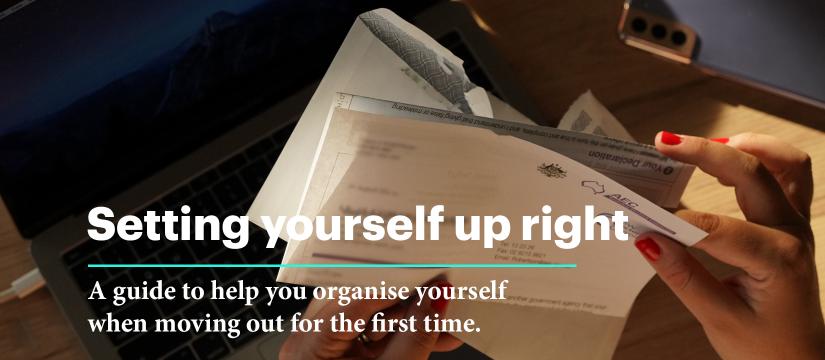
A Guide to Adulting: Money and Moving Out
Leaving home is an exciting milestone; a time when you learn an enormous amount about life, responsibility and yourself. To help you (or someone you know) get started on this momentous journey, we’ve put together a few tips to help make it a smooth and successful launch.
Set yourself up for success
How you manage your money could be the difference between independence and a swift return home, only to find Dad has set up his model train set in your old room. Awkward. So, before you make your move, set yourself up with a budget to keep your finances on track.
A budget allows you to track the money you have coming in versus the money you have going out, so you can live within your means. One way is to keep track of your bank transactions to know what you’re spending weekly, fortnightly and monthly. Another is to put it all in a spreadsheet and manually enter each transaction. An even easier way is to use an app like Pocketbook.
Pocketbook is a free Australian budgeting app that allows you to keep track of your spending. Once you’ve linked up your bank accounts, it tracks your transactions and groups them by category, so you can see what you’re spending on things like entertainment, groceries and shopping. It can also send you reminders if you have recurring bills or payments due.
There are several good budgeting apps to choose from, each with different functions for different needs so do your homework to find the right one for you. Many banks also have their own apps you can use to help manage your money.
Bills, bills, bills…
Having bills to pay is a sure-fire sign you’ve hit adulthood, and it can be surprising to see just how quickly they seem to come around.
Whether you’re paid weekly or monthly, it can be helpful to schedule bill payments to coincide with your pay landing in your bank account. The idea is to pay your fixed expenses before anything else. Arrange direct debits for things like rent, phone, Netflix and your gym membership to come out the day after you get paid. That way, you know they’re taken care of up front and what’s left is discretionary, meaning you can choose to allocate it elsewhere, like entertainment or eating out.
Speak up if money gets tight
If you find you’re struggling to pay your bills for any reason, don’t ignore them because they won’t just go away. Get on the front foot and call your bank, real estate agent or phone service provider and explain your situation. You might find you’re given an extension or deferred payment solution to help until you’re back on your feet again. Australian financial advice site Moneywise offers some helpful advice on what you can do if money’s tight and you’re not sure what to do.
A place to call home
Once you’ve got your financial ducks in a row, you can hit the ‘open for inspection’ circuit and plan your big move. Keep in mind that moving costs can add up, so you’ll need to budget for these extra expenses, too.
If you’re renting, which the majority of first timers out of home will be, you’ll need to pay a security bondthrough your leasing agent or the property owner and schedule regular rent payments.
Next, arrange your utility connections, such as water, gas and electricity. Shopping around energy providers can save you money if you have the time. If you’re short on time or not sure where to start, Connectnow can take a lot of the legwork out of your move. It’s a free service that helps you find utility and moving suppliers in your area and then partners you with the services you need.
If you prefer to book your own removalists, read a few reviews online before you do, as some are more reputable than others. A more cost-effective alternative is to hire a truck or van and ask family and friends to lend a hand on moving day.
Protect your belongings
Once you’ve moved in ask yourself: could you replace your contents if you had to? Even if you’re renting, your belongings are important, so it’s a good idea to get a quote for contents insurance, which can protect you against loss or damage from fire, flood or theft. NRMA Insurance has a handy contents calculator that can help you.
Then, once the last box is unpacked, take a step back and congratulate yourself on taking this momentous step into an exciting future. The world is your oyster: dive in.
This content is intended to be general in nature and is not financial or professional advice. We recommend you obtain independent professional advice relevant to your circumstances, before making any financial or commercial decisions.

